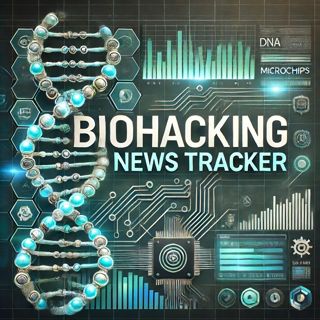
Biohacking Goes Extreme: Millionaire Spends $20K on Remote Island Treatment
Biohacking has increasingly become a popular method for those looking to push the boundaries of human biology, aiming to enhance physical and cognitive performance through a blend of medical, nutritional, and electronic techniques. Among the most enthusiastic proponents of this trend are individuals like Bryan Johnson, a multimillionaire who has reportedly spent substantial sums to optimize his body and brain function.Based in California, Johnson's journey into the depths of biohacking took an intriguing turn with his most recent endeavor—a $20,000 treatment on a remote island off Honduras. This bold move underscores the lengths to which biohackers are willing to go to achieve their desired levels of enhancement. Though details on the specific procedures Johnson underwent are scant, such high-cost interventions typically involve a combination of experimental and traditional medical treatments that target various aspects of physiological functioning.Meanwhile, entities like ChristiMD Medical Group, recently rebranded as LifeSculpt by ChristiMD, signify the formal and commercial expansion of biohacking into the healthcare industry. Under the leadership of Dr. Christi Pramudji-Dawe, LifeSculpt is pioneering in integrating biohacking with longevity practices, aesthetics, and urogynecological health. This transition highlights the increasing demand for biohacking interventions, as more individuals seek novel ways to enhance their health and appearance.The services provided by LifeSculpt cater to a clientele that is keen on using cutting-edge science and technology to improve their quality of life. Whether it's through nutritional adjustments, hormone therapies, or more invasive procedures, the goal remains the same: to harness the body's potential and possibly extend its capabilities beyond conventional limits.Biohacking, in essence, represents a profound shift in how we view human health and potential. By combining elements of medical science, technology, and self-experimentation, biohackers like Johnson and medical entrepreneurs like Dr. Pramudji-Dawe are at the forefront of exploring new frontiers in human enhancement. As this field continues to grow, it will likely present both extraordinary opportunities and ethical challenges, mirroring the complexities of merging human biology with technological advancement.This content was created in partnership and with the help of Artificial Intelligence AI
18 Jun 20242min

Biohacking Takes Center Stage: Medical Groups Integrate Cutting-Edge Approaches to Optimize Health and Longevity
In the evolving landscape of medical health and wellness, a dynamic shift is noticeable among practicing groups that are integrating cutting-edge approaches like biohacking into their services. A striking example is ChristiMD Medical Group, which has recently rebranded itself as LifeSculpt by ChristiMD. This repositioning underscores a growing industry trend where medical providers are not just treating illnesses but are actively enhancing life quality through technology and innovative practices.Founded by Dr. Christi Pramudji-Dawe, LifeSculpt by ChristiMD now specializes in a niche yet expanding area of healthcare that includes longevity, biohacking, aesthetics, and urogynecological health. This transformation reflects a broader interest in leveraging medical science to optimize human performance and well-being—a field often termed as 'biohacking'. Typically, biohacking involves a combination of medical, nutritional, physical, and electronic techniques to manipulate the body's natural systems to enhance performance, vitality, and health.Biohacking is no longer a fringe activity but is increasingly mainstream, as evidenced by its adoption by high-profile businesses like Equinox. Equinox, known for its high-end fitness clubs, has ventured into the longevity market with a new program reportedly priced at $40,000, aimed at helping its members extend their life spans. The program promises access to the latest advancements and techniques in longevity science, once again highlighting the commercial appeal and growing consumer interest in biohacking.At its core, biohacking can range from simple lifestyle and dietary changes to extensive genetic editing and implant technology. It taps into the human aspiration to not only extend lifespan but also to improve the quality of life and physical capabilities. As companies like LifeSculpt by ChristiMD adopt these practices, they cater to a clientele that is increasingly informed and enthusiastic about the potential to transform their health through science.As the interest in biohacking grows, so does the conversation around its ethical, legal, and health implications. The accessibility of biohacking modalities raises important questions about equality, safety, and the nature of human enhancement. As this field evolves, regulatory frameworks will likely be challenged to keep pace with the speed of developments.Therefore, the transition of ChristiMD Medical Group to LifeSculpt by ChristiMD and the introduction of high-cost longevity programs by fitness giants like Equinox signify a shift towards a future where healthcare meets lifestyle optimization, driven by advancements in medical technology and a deeper understanding of human biology. This blend of technology, medicine, and consumer health is not just about treating the sick but about enhancing the human experience, signaling a new era in human health development.This content was created in partnership and with the help of Artificial Intelligence AI
17 Jun 20243min





















